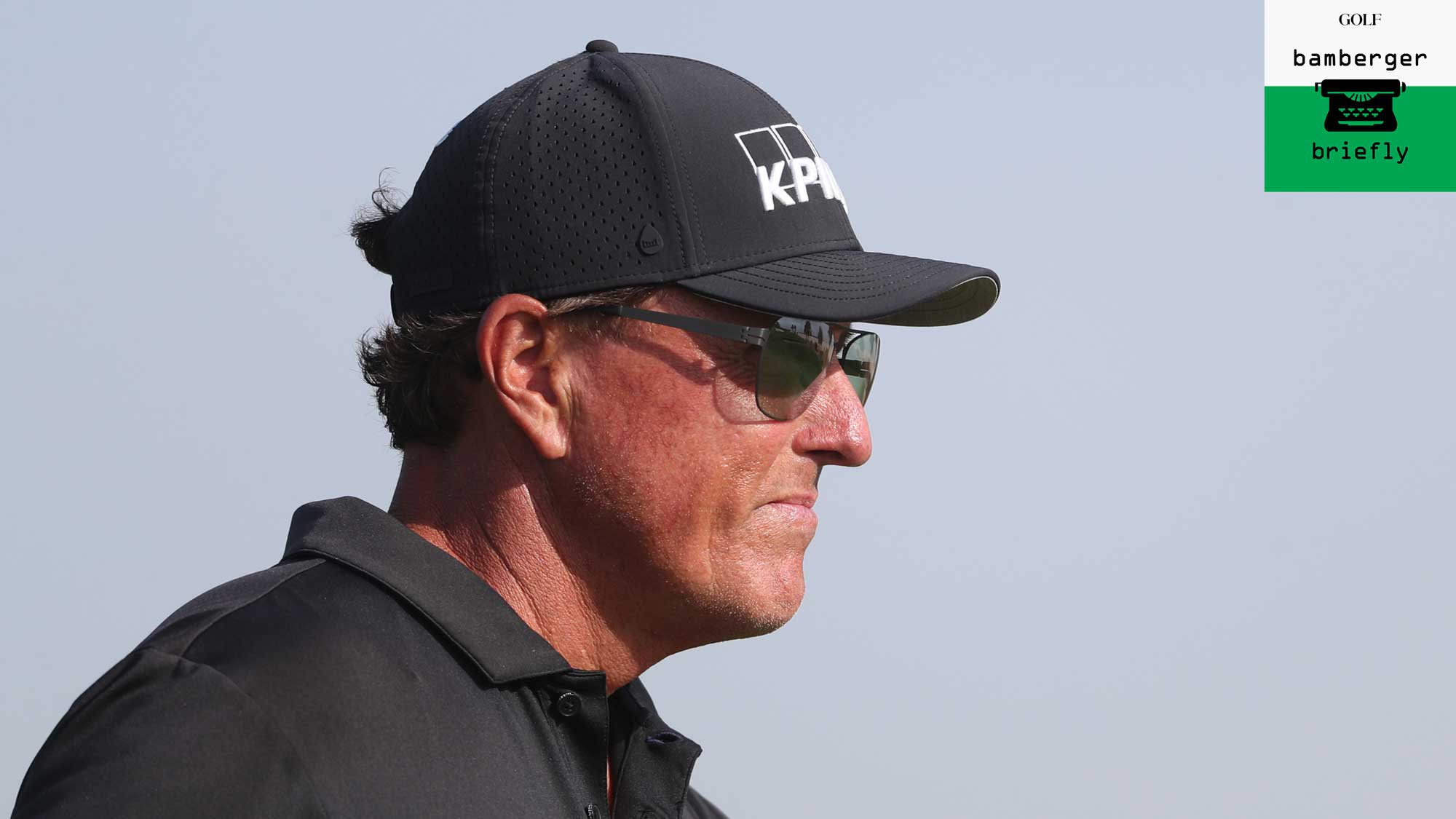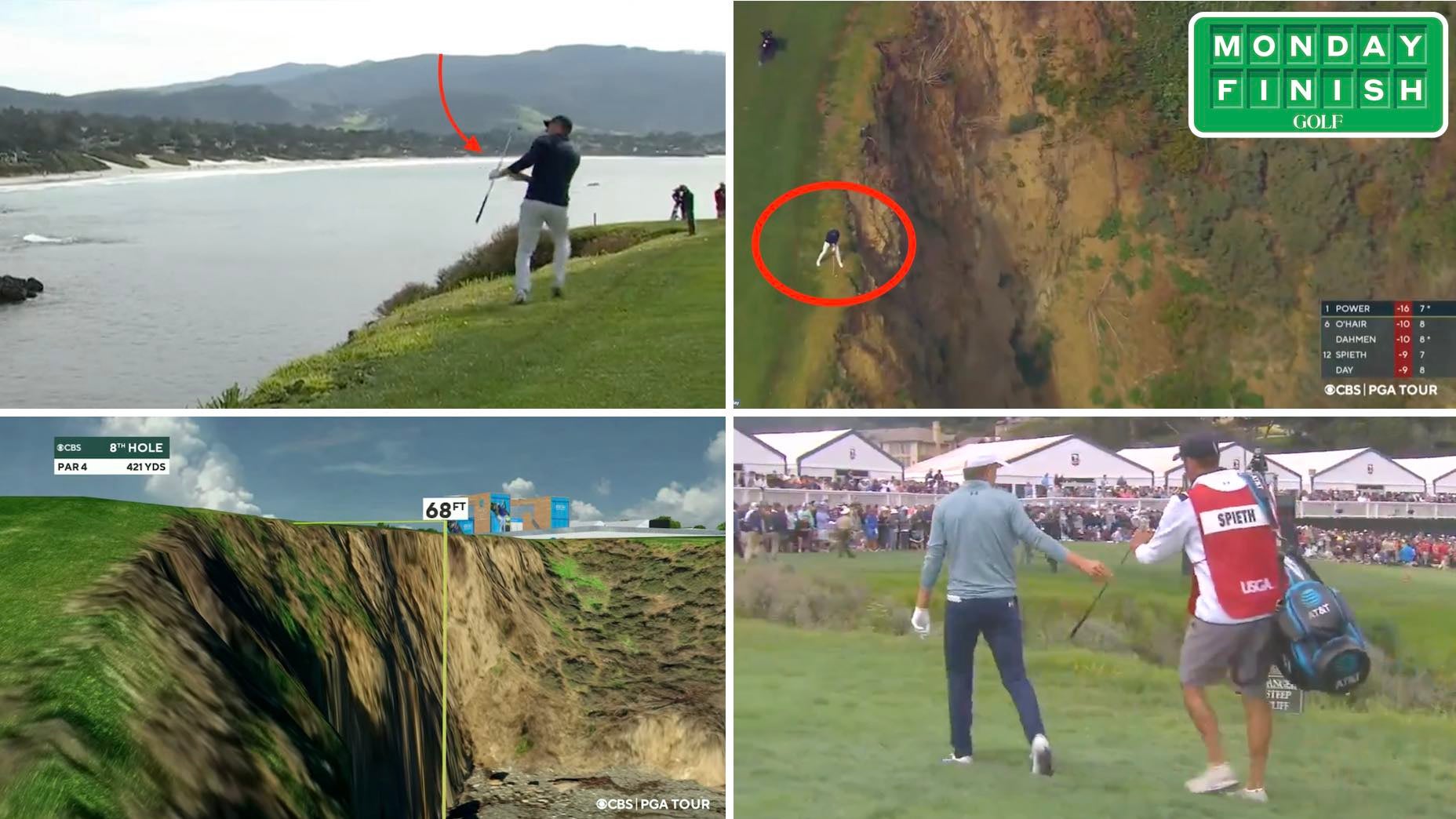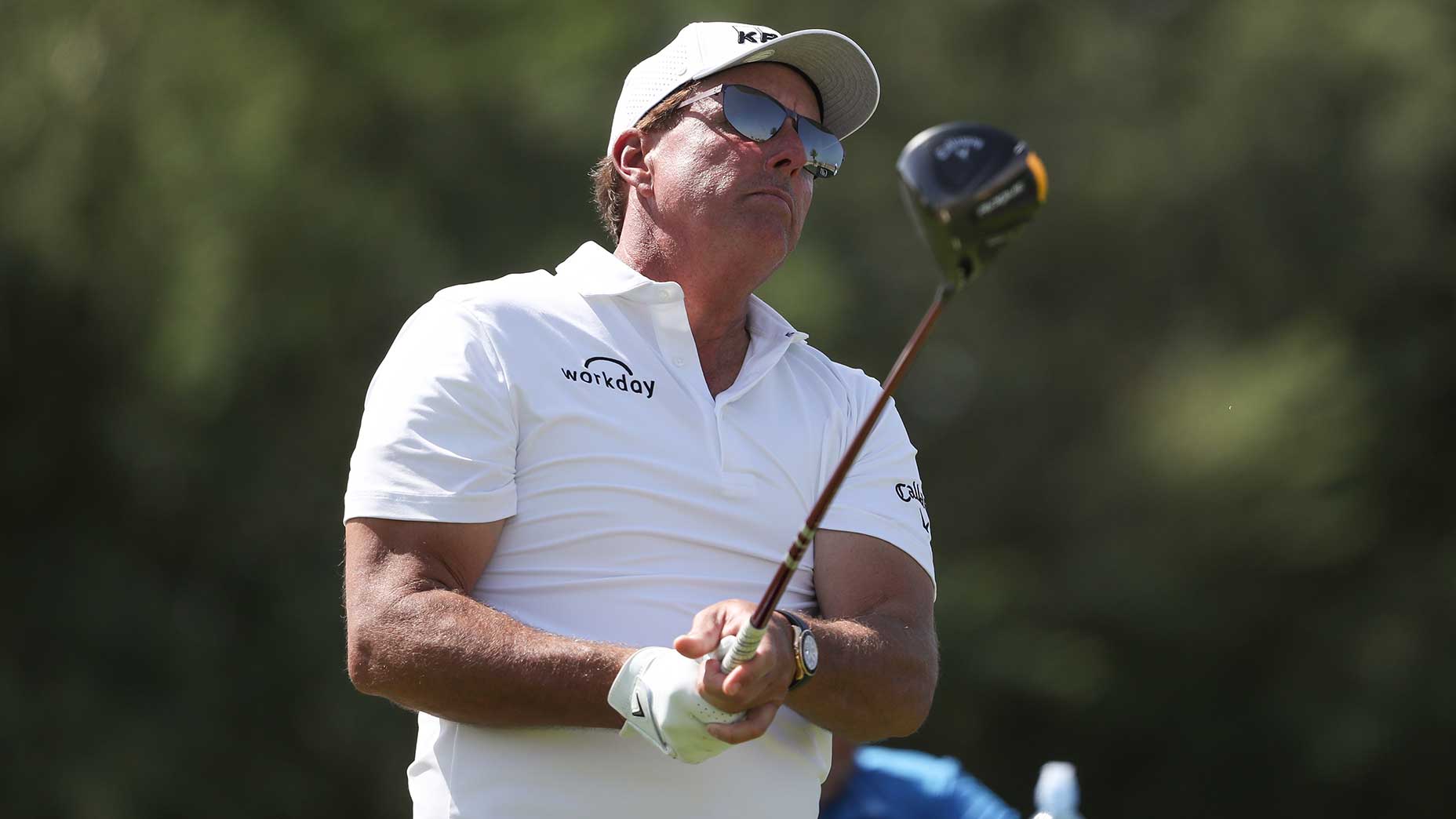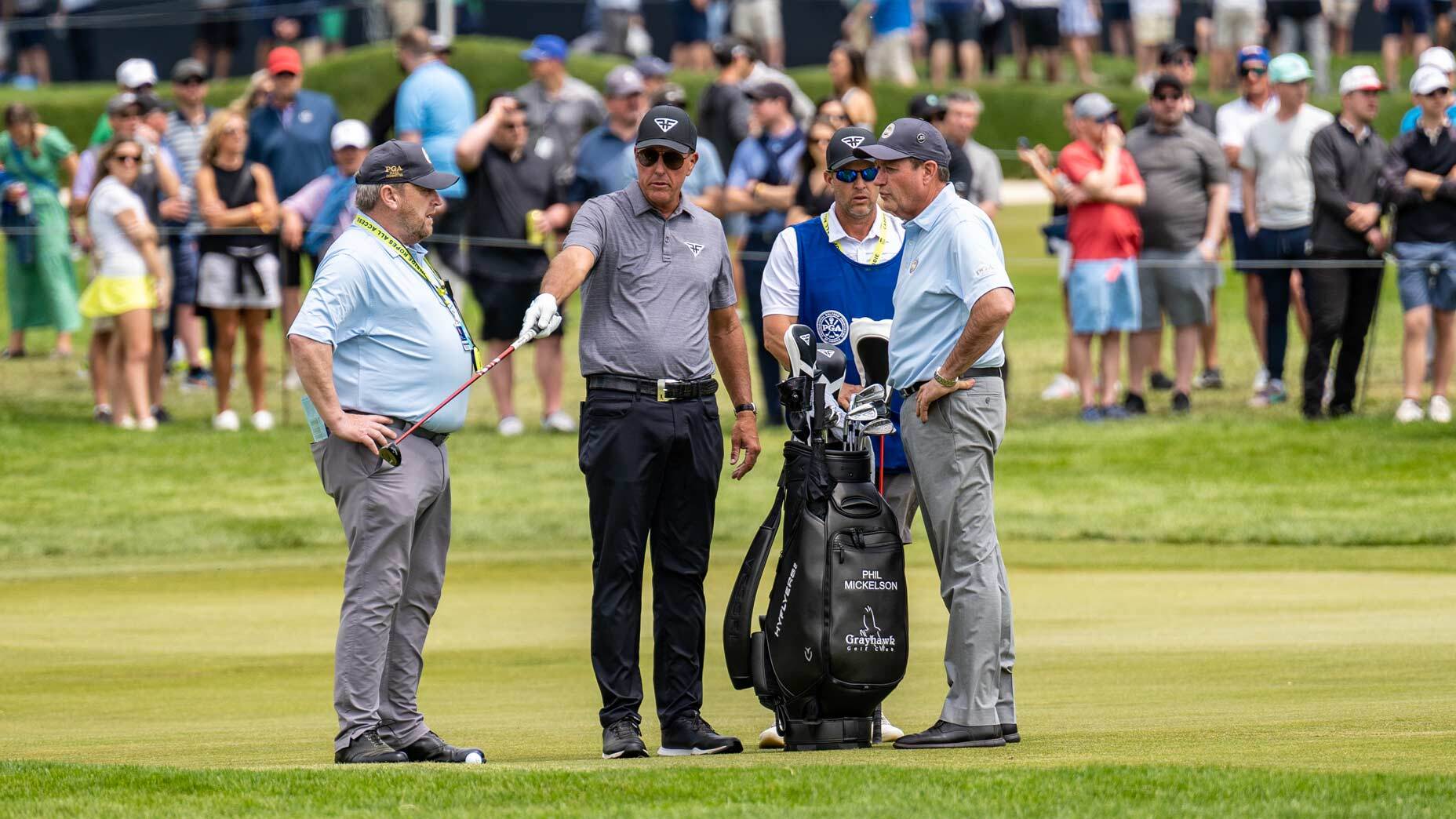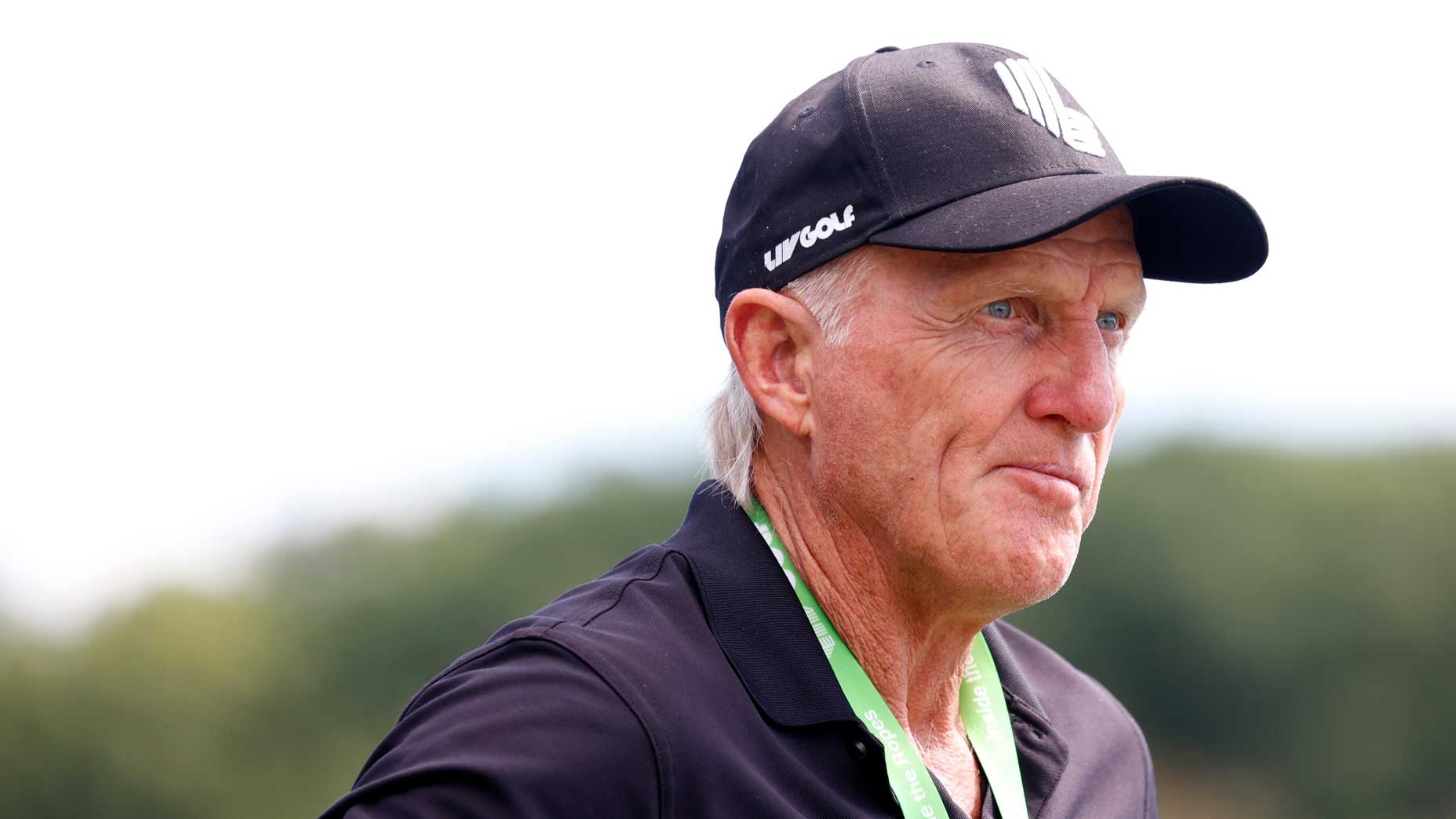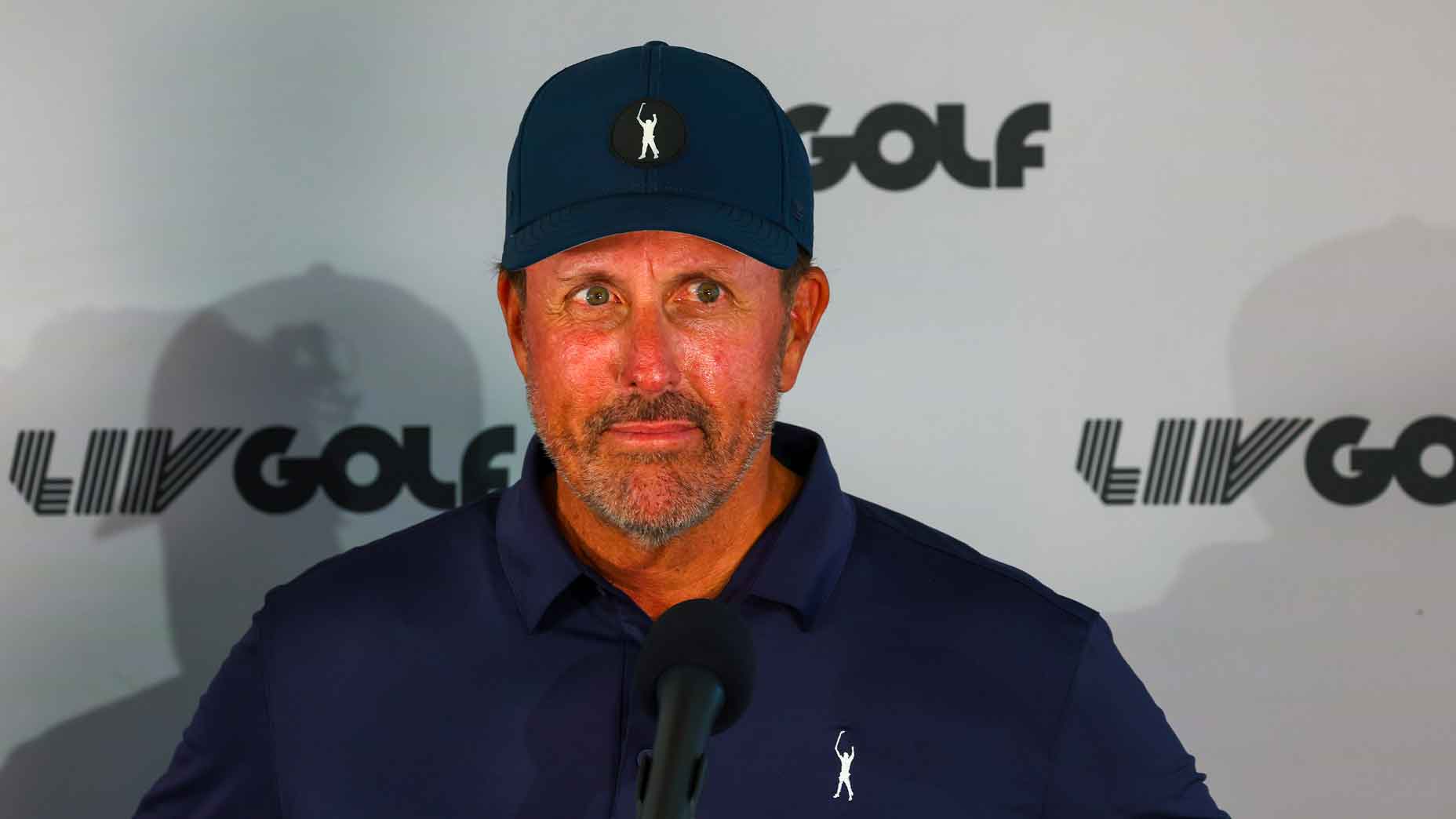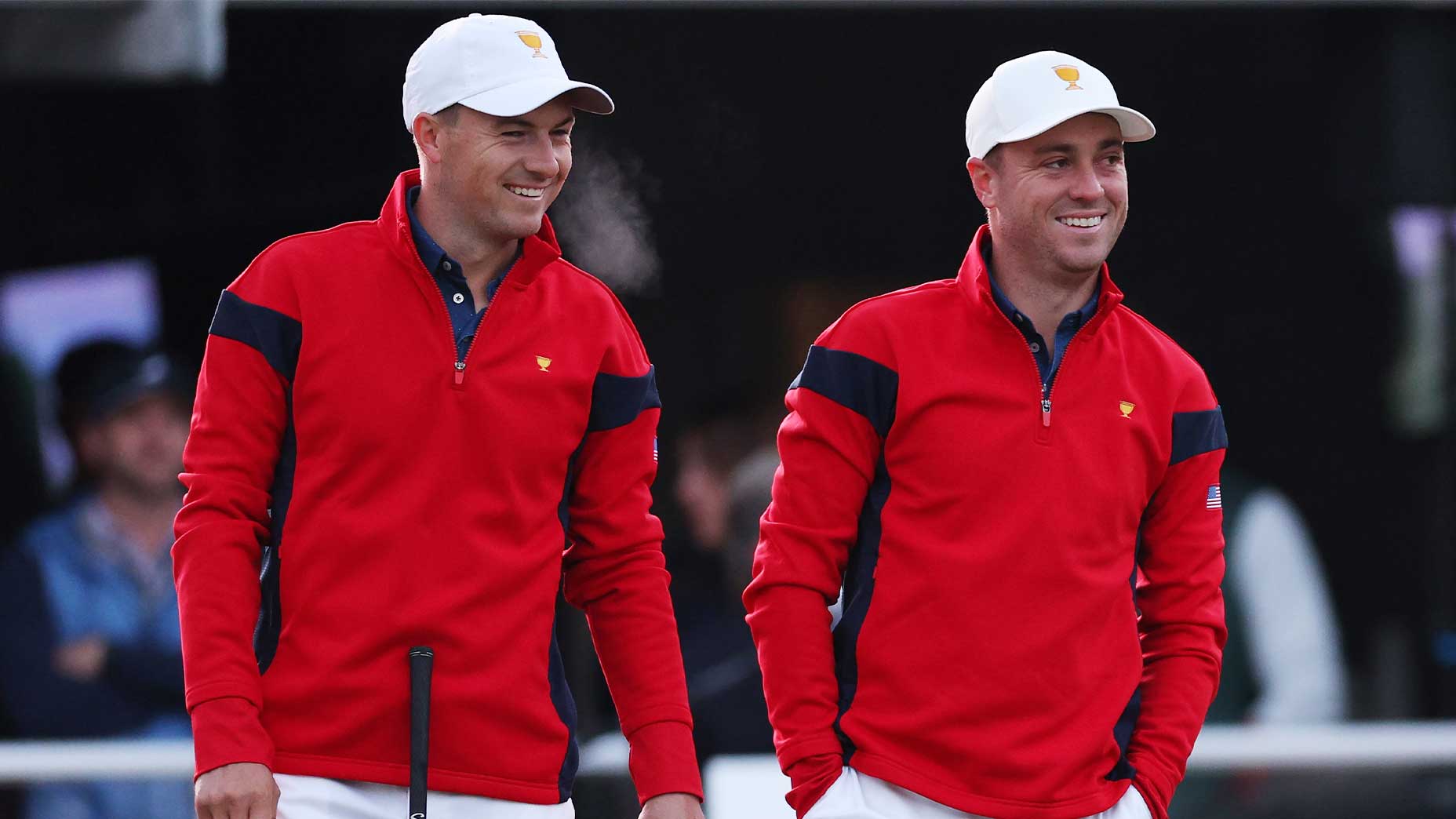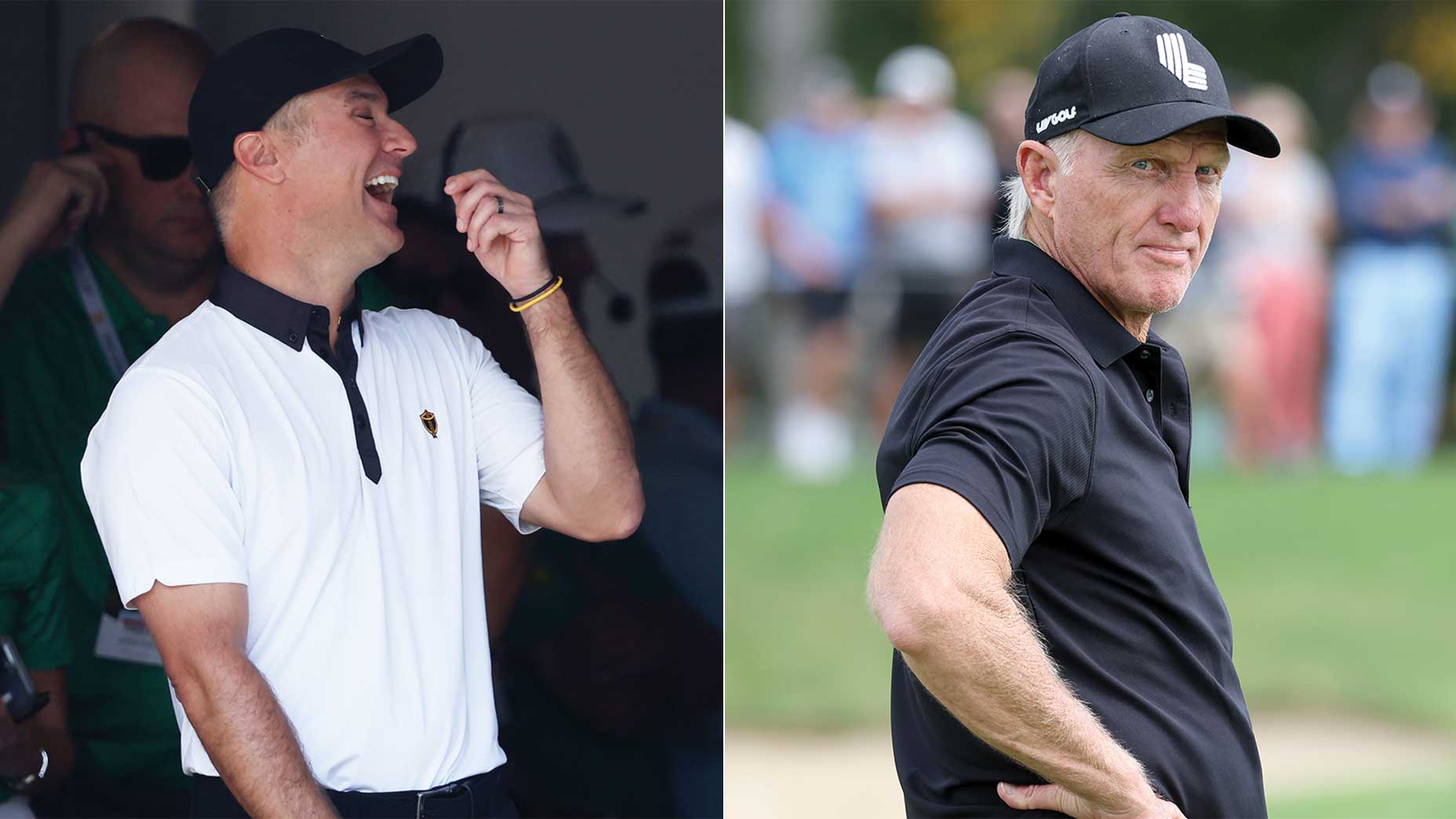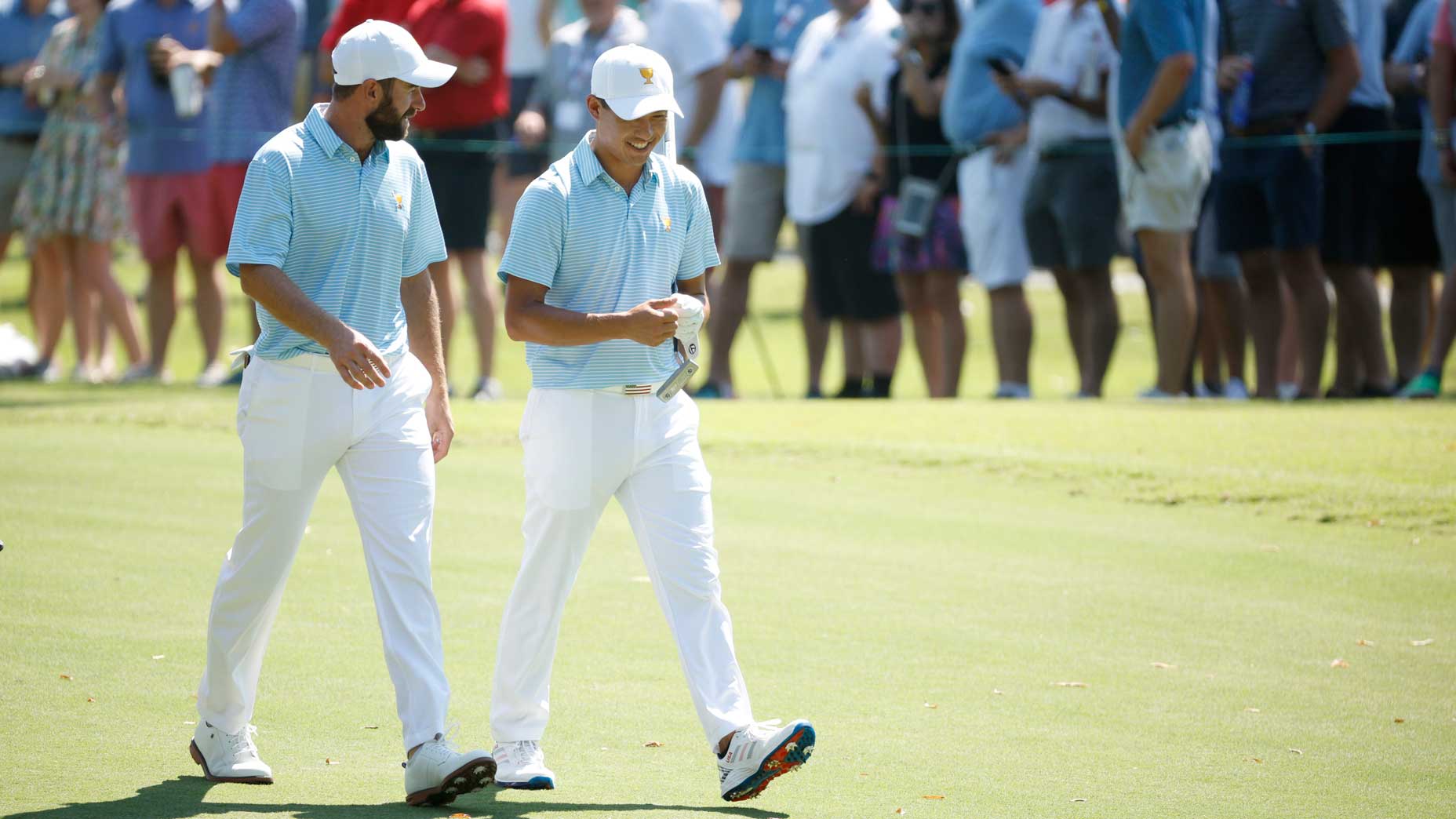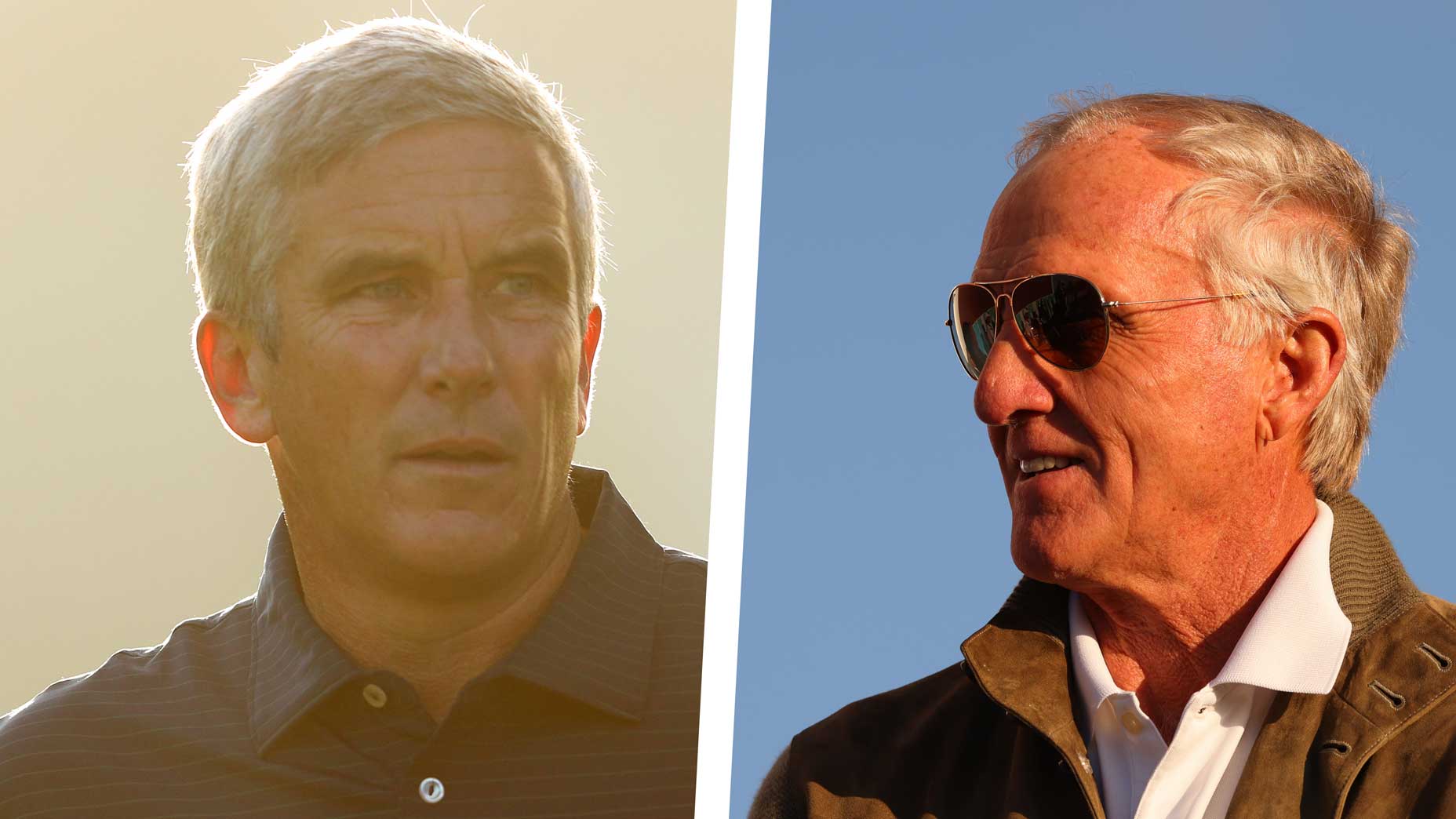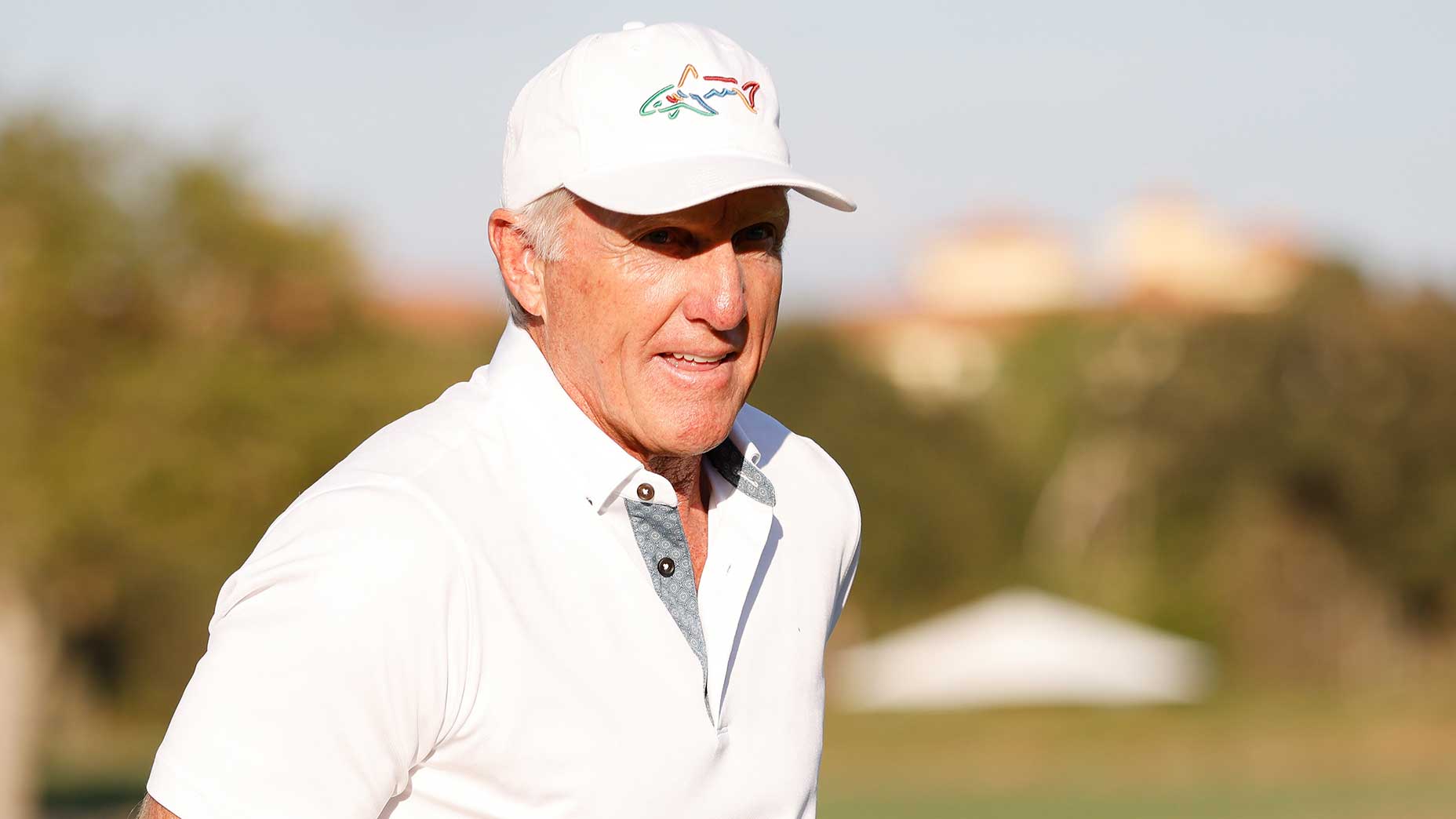My goodness, the NFL takes a week and golf fills the void every which way to Sunday. The shots! (Harold Varner’s 90-foot putt to win in Saudi Arabia, Jordan Spieth’s third-round approach shot on 8 to save par on the Pebble Beach Golf Links.) The chatter! (Phil Mickelson in Saudi Arabia.) Plus, of course, Bryson DeChambeau. Wouldn’t be an interesting week in golf without Bry-Bry finding his way into a headline.
Last week, on the world’s golf stage, there was a heavyweight battle being waged: the PGA Tour, funded by all your favorite American corporations, versus the growing golf interests of the Saudi ruling class.
Spieth stole the show at the Pebble Beach AT&T Pro-Am, a venerable Tour stop. Pebble Beach. Spieth. That’s a powerful combination. That’s the Tour at its best. Here’s Spieth, with his ball in the air on 14: “Go. Go. Go. Go. Gitup!” (Good to have him back.)
Monday Finish: Details you missed from Jordan Spieth’s cliff adventureBy: Dylan Dethier
Here’s Spieth, one of the most articulate golfers in the game today, trying to explain the inexplicable, why he played that potentially catastrophic cliffside shot on the 8th hole on Saturday, per the ASAP Sports transcript of his post-round interview:
“But yeah, I mean it was, I was more like, it was more of a nervous and adrenaline hitting it and then when I got to the green as I was walking there it was more of like an anxiety feeling afterwards, luckily it wasn’t before. But, yeah, I mean if I had, I think I’ll hit less club tomorrow.”
And then, in the far corner of the ring, there was the Saudi International, the Asian Tour’s equivalent of the Players Championship, played at the Royal Greens Golf and Country Club, in the King Abdullah Economic City, in Saudi Arabia. HV3 made a bomb on the last to beat Bubba Watson by a shot. That made for great TV (on Golf Channel, in the U.S.), and it was wonderful for Varner, who has not won yet on the PGA Tour. Varner is popular wherever he goes.
But his win was bad news, in the corporate sense, for the PGA Tour and its commissioner, Jay Monahan. The Saudi event is, in effect, a Greg Norman event. Norman is the CEO of a group called LIV Golf and the likely future commissioner of a planned global golf league that will seek to compete with the PGA Tour. For now, what’s good for Norman is bad for Monahan. Maybe in time that will change.
For now, what’s good for Norman is bad for Monahan. Maybe in time that will change.
Among the players who have never been close to making a Ryder Cup team, Varner is probably the most popular right now — with fans, with reporters and with his fellow players. He’s unpretentious, he’s loose in his conversation, he’s one of the few Black players on Tour, and he knows what it’s all about, to play golf for money. If he comes home and says the Saudis treated him well and he can’t wait to go back — for more lucrative golfing fun — that will carry a lot of weight with his brethren.
The assassination of Jamal Khashoggi is less likely to be a driving-range subject this week at TPC Scottsdale, where Varner is in the field, as is Spieth.
Phil Mickelson is not, but his comments in an interview with Golf Digest will continue to make the rounds.
Here’s the one getting the most attention:
“For me personally, it’s not enough that they are sitting on hundreds of millions of digital moments. They also have access to my shots, access I do not have. They also charge companies to use shots I have hit. And when I did ‘The Match’ — there have been five of them — the Tour forced me to pay them $1 million each time. For my own media rights. That type of greed is, to me, beyond obnoxious.”
Mickelson, at 51, talks better than he ever has, and that’s saying something. He’s a plus-5 talker, or better. He wants what millions of people want: more money, more status, more power.
In 2014, after a U.S. Ryder Cup defeat in Scotland, he single-handedly spearheaded a movement that took Ryder Cup power away from the PGA of America and gave it to the game’s star players, including former Ryder Cup captains. He clearly thinks that the PGA Tour “takes” too much and that the players, the star players, in particular, don’t get enough. He refers to the PGA Tour as “they.”
Phil Mickelson rips PGA Tour, says its ‘greed beyond obnoxious’By: Josh Berhow
You could say it’s misguided, because the PGA Tour, bloated bureaucracy and all, is the sum total of the interests of the Tour’s players. Its managers are paid to weigh various constituencies, but in the end the Tour exists to serve the players, and to keep its tax-exempt status while doing so. You need some high-paid talent to do that.
This is the irony of the moment. The golfers look like conformists, in how they dress and what they say, but for the most part they are cowboys playing an individual sport. Nobody, really, tells a Tour player what to do, except to play by the rules.
The fellas playing MLB, in the NFL and in the NBA, have an appealing level of individuality, but they are union workers playing team sports. They have, really, a completely different mentality.
If Mickelson really wants to affect change the most effective thing he could do is get 150 or so Tour players to stage a sit-down strike on the eve of, say, the Waste Management Phoenix Open. Then get that group to agree on media rights, purse distribution, governance structure and a million other things.
Good luck with that.
There has been some talk about Phil getting Tony Romo money to talk golf on TV. He’d be good at that, but it would bore him. It’s easier to imagine him as the commissioner of a golf league. Which one is hard to say just now.
Michael Bamberger welcomes your comments at Michael.Bamberger@Golf.com
